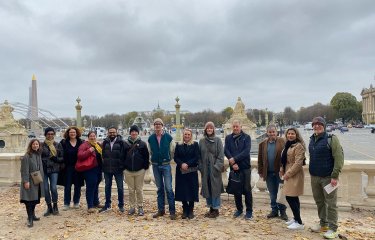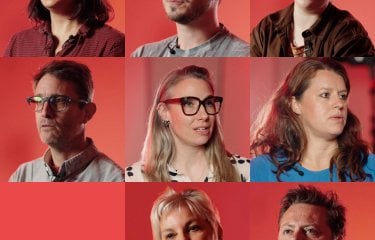A career shift in progress: From Brand Design to UX Design
28 March 2022

This piece was written by User Experience Design MA (Online) student, Olivia Dias Bagott. Her research interests include persuasive design, behaviour design and climate tech. Here she shares her experience of studying for an online master's degree in UX Design.
I’m a nature-loving multidisciplinary designer based in Florianópolis, Brazil, where I spend my days between the ocean and my MacBook. Some call it the Silicon Valley of the Southern Hemisphere. I call it home after leaving the UK to come to my mother’s homeland four years ago.
I initially started my career as a fashion designer, but after two years became disillusioned with the amount of waste in the industry. So I shifted my focus to marketing and graphic design, where I could work with various projects, including climate action and social enterprises. I transitioned my career by supporting clients with visual identity and online presence. I set up a remote branding studio, Ardea Creative, three years ago.
At Ardea, I design visual identities and websites for freelancers, small businesses and social enterprises. I work independently and collaboratively with web devs and my business partner, who does copywriting.
As an independent designer, I have been focused on brand and UI design. However, shifting my focus to UX design means that I will be well-positioned to manage more complex, impactful projects for more prominent organisations. I enjoy collaborative, data-driven design and am interested in design ethics. Learning from The Centre of Humane Tech’s online course led me to research ‘persuasive design’ and the impacts of social tech on our behaviour as individuals and societies. I’m interested in studying how we can use technology to create healthier communities by connecting locally, creating sustainable habits and access to educational resources.
Why I chose to do an MA in UX Design
I chose to study for a master's degree in UX Design at Falmouth University as an entry to working on more complex projects with bigger teams. To develop my knowledge of design processes, my eye for detail and my ability to design using data. Halfway through, I’m already able to take on projects for organisations that I care about with more confidence and the ability to offer more value to my freelance clients.
I also wanted to deepen my knowledge of human-computer interaction. I’m fascinated by how the digital interfaces we interact with daily impact our behaviours, relationships and ways of living.




